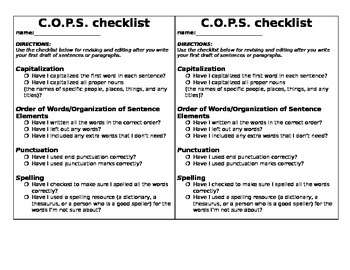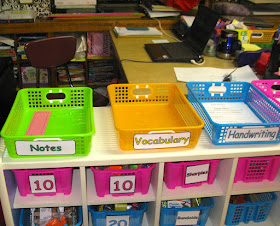Short term memory is often a concern for individuals with
executive functioning deficits. This can make it difficult for them to remember
assignments or directions. Today's Executive Functioning Forum provides strategies for students who struggle with memory skills.
Organizing Materials
Students with memory deficits often forget all of the items needed for each of their classes. Provide visual cues and color-coded supports to help them with gathering the needed materials for each class.
 |
| Melanie Lewis Snyder Park Elementary, Springfield |
 |
| Brittany Bush Spinning Hills Middle School, Mad River |
They may also forget what homework needs to be done and what materials need to go home to complete assignments. Provide a consistent system for organizing homework assignments and include supports for knowing what needs to be taken home such as a book bag tag.
 |
| understood.org |
Once assignments are completed, sometimes they may forget to turn them in. Have a clearly communicated system for student's to turn in their classroom like the examples below:
 |
| Teaching with a Mountain View |
 |
| Scholastic |
Sequences
Students with executive functioning deficits often have a hard time remembering a sequence of events whether it is their daily schedule, to daily living routines, or steps needed for assignment completion. Use visuals supports to help them remember what is expected.
 |
| Jamie Zimmer Kettering Middle School, Kettering |
 |
| Annette Stine Kyle Elementary, Troy |
 |
| Jennifer Jette Vandalia-Butler High School, Vandalia |
 |
| Brittany Sword Valley Elementary, Beavercreek |
 |
| Jody Chick Yellow Springs High School, Yellow Springs |
 |
| Emily Ottmar Stevenson Elementary, Mad River |
 |
| Katy Boston Morton Middle School, Vandalia |
Academic Skills
When reading, they may have difficulty with
switching gears between decoding and comprehending what has been read. Be sure to prioritize the expectations of the reading task. If you are practicing decoding, students may read independently but when practicing comprehension they may receive more guidance with decoding until they are more fluent. They may also forget directions for what needs to be completed. Use visual supports and predictable routines.
Using the same format for reading activities such as learning new vocabulary or answering comprehension questions but changing the format helps students focus their efforts on remembering the content rather than needing to remember the content and the expectations of a new task.
 |
| Taylor Ruef Stevenson Elementary, Mad River |
 |
| Brittany Bush Spinning Hills Middle School, Mad River |
Writing
can also be impacted because they may have difficulty remembering spelling
patterns or remembering what they wanted to write. Word Walls, spelling dictionaries, or word pattern visuals can be helpful tools.
 |
| Versailles Elementary |
Graphic Organizers also help with writing organization while editing checklists can help students correct their work to correct any elements they may have missed.
 |
| Super Teacher Worksheets |
 |
| Teacher Pay Teachers |
They may struggle with
holding the steps of an equation or work problem in their working memory.
 |
| OCALI: Power Cards |
 |
| OCALI: Cartooning |
Keep in mind when working with students with executive functioning deficits, that their performance can often be inconsistent from day to day. This may sometimes feel frustrating to staff or may appear to be a choice behavior because the student is able to perform a skill one day but the next day is unable to perform the same skill. This does not necessarily mean the student is refusing to perform, but rather can indicate an issue with their memory skills and remembering how to perform the skill. If a student frequently demonstrates inconsistent memory skills, consider how you can use visual supports like those shared above to help them remember and be more successful.
For more ideas on meeting the needs of students with executive functioning difficulties, check out our previous Executive Functioning Forum.











No comments:
Post a Comment